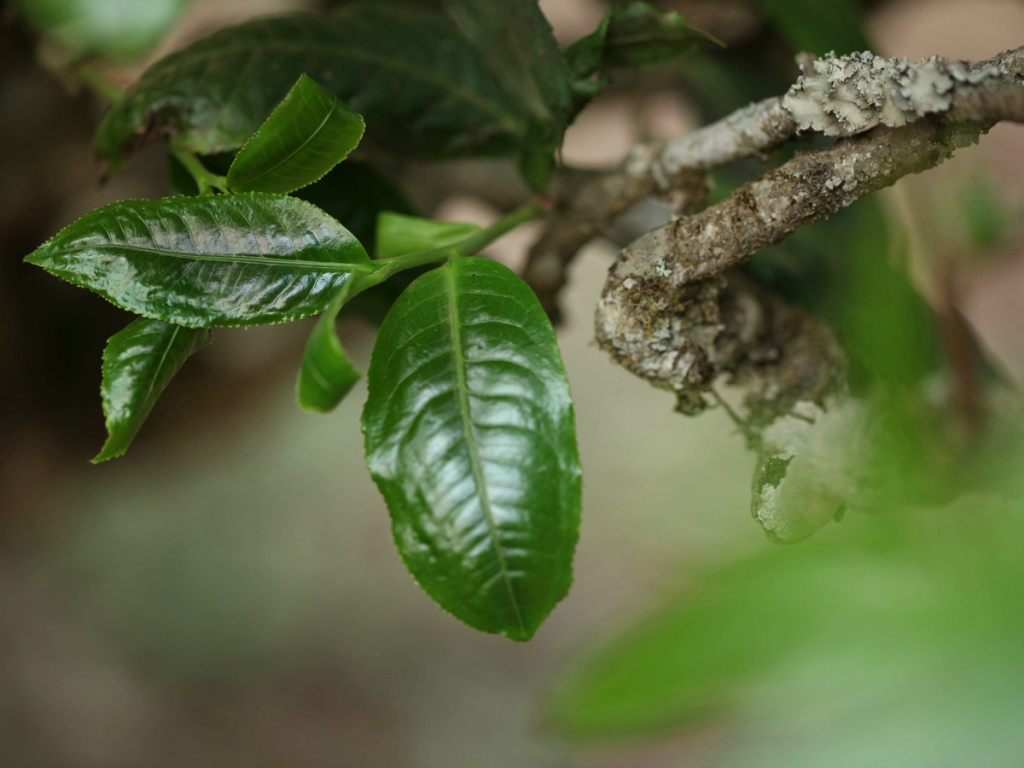Mengku Daejung
Why is regular small leaf tea inferior to large leaf Mengku Daejeong tea?
The large leaf tea variety from Mengku in Chinese is 勐库大叶种, in Russian it sounds like Mengku Daezhong.
- 勐库 (Měngkù) is the name of a region in China famous for its tea plantations.
- 大叶种 (dàyè zhǒng) means "large-leaf variety".
Thus, "勐库大叶种" literally translates into English as "large-leaf variety from Mengku".
There are many varieties and types in the world of tea, each with its own unique characteristics. But why is it that large-leaf tea of the Mengku Daezhong variety has earned such a high reputation and is always popular among pu-erh connoisseurs? Let's look into this issue in more detail.
When talking about puer, everyone knows that it is made from large-leaf tea raw materials grown on Yunnan tea bushes and subjected to special processing. Moreover, large-leaf varieties of Yunnan include dozens of varieties grown in regions such as Simao, Xishuangbanna and Lincang.
Among them, the most important variety is Mengku Daezhong, which is widely distributed throughout almost the entire Pu'er and Baoshan area, including Mengku and Shuangjiang areas.
In the past, Mengku Daezhong was not a strictly defined variety. The locals of Mengku, recognizing the high quality of their large-leaf tea trees, simply called them "Large-leaf variety."
Later, as the purity of the variety increased, this name acquired a more specific meaning, and so "Large Leaf Tea" was renamed "Maengku Daezhong".
Features of large leaf tea Mengku
- Rich taste and aroma: Large leaves of the Mengku Daezhong tea bush contain more nutrients, essential oils and amino acids. When brewed, they reveal their aroma more fully and richly, giving the tea a deep and multifaceted taste.
- High Nutrient Content: Large leaves of Mengku Daezhong contain more antioxidants, vitamins and minerals, making this tea not only delicious but also healthy.
- Aging Ability: Mengku Daezhong large leaf tea has a unique ability to improve its taste over time. The aging process gives the tea new shades of taste and aroma, making it even more valuable.
- Resistance to external influences: Large leaves are less susceptible to damage and oxidation, which allows them to maintain their quality for a long time.
The water-soluble content of ordinary pu'er is about 38%, while the content of water-soluble substances in pu'er made from Mengku Daezhong reaches 52.1%, which is an unprecedented figure among the world's tea resources. Therefore, pu'er made from Mengku Daezhong variety is characterized by a thick, rich taste with a rich aftertaste.
Mengku Daezhong is distinguished by early bud awakening, and can produce up to 5 new shoots per year, which is 37-65% higher than other varieties. High content of nutrients, excellent adaptability, high yield... The many advantages of Mengku Daezhong cannot fail to attract the attention of tea farmers, traders, and even tea connoisseurs.
In the high-quality tea products on the market, Mengku Daezhong is an indispensable component. The emergence of famous places such as Bindao and Xiaohusai testifies to the deep roots of the Mengku Daezhong variety.
In addition to Pu'er, Mengku Daezhong also produces high-quality black, white and green teas. For example, the well-known Fengqing Dianhong is also made from Mengku Daezhong, but it was named after the Fengqing region to meet commercial needs.
Interesting fact: Although Fengqing Dianhong is named after the Fengqing region, the raw materials for its production are often sourced from other areas of Yunnan, including the famous Mengku.
Fengqing Dianhong (Chinese: 凤庆滇红, pinyin Fèngqìng Diānhóng).
- 凤庆 (Fèngqìng) is the name of a county in Yunnan Province, China.
- 滇红 (Diānhóng) is a type of black tea produced in Yunnan province.
Thus, 凤庆滇红 means "black tea from Fengqing". This tea is known for its bright color, rich taste and fruity aroma.
Why is regular loose leaf tea less popular?
- Less Nutrients: Small leaves contain fewer nutrients than large ones. They are often crushed more during processing, which results in the loss of some of the aroma and flavor.
- Faster Oxidation: Small leaves have a larger surface area, which causes them to oxidize and lose freshness faster.
- Less pronounced flavor: Most often, small-leaf tea has a less rich and complex flavor compared to large-leaf tea.
Nowadays, Mengku Daezhong is widely grown not only in the tea regions of Yunnan, but also in the distant provinces of Fujian, Guangxi, Guangdong, Sichuan and even Sri Lanka, where the tea also contains Mengku genes.
Large-leaf Mengku tea is deservedly considered one of the best tea varieties in the world. Its rich taste, aroma and useful properties make it a welcome guest on any tea table. Of course, small-leaf tea also has its fans, but in terms of the totality of its qualities it is inferior to large-leaf Mengku tea.
- Комментарии
- Вконтакте





